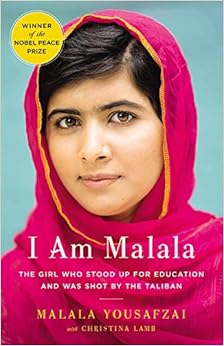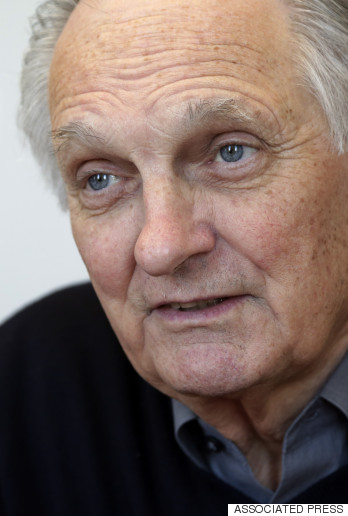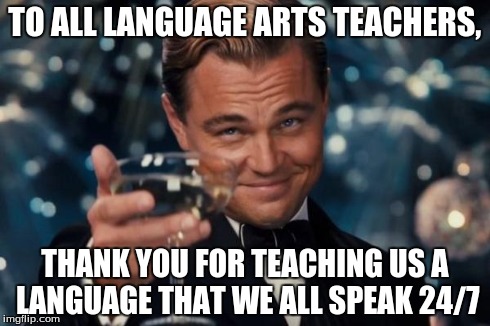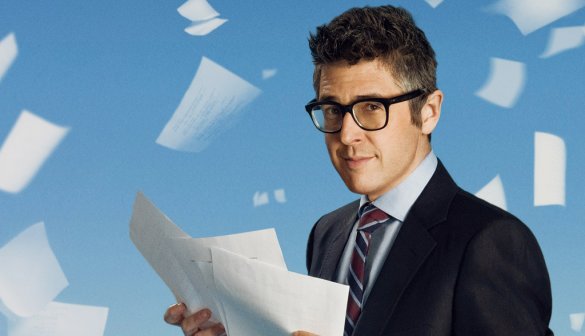I recently completed a weeks-long reflection on pride. I've always considered one of my greatest flaws to be my pride, and I'm too scared to ask God to help me solve it. I mean, that's just a bad idea. The last time I said a "Please help me overcome my pride" prayer to God was in middle school, and I didn't get a part in the school play that week. When you ask God to humble you, He humbles you. It's not fun.
So instead I got smart. I'm going to ask to understand my pride, I said. If I understood it, perhaps I could conquer it myself, like I've been trying to do all along.
It turns out a prayer to understand pride is synonymous with, "Please give me a chance to examine my pride," which is synonymous with, "Hurt it, please."
After living successfully on my own, supporting first myself and then a spouse at a job that used my English degree in the Boise area of Idaho, I have moved back to Utah, the Mormon homeland, to live in my in-laws' basement. That's another post altogether, and I'll probably get to it. But to make it short for now, this circumstance hurts my pride.
Oh, and on top of that, I'm working at a job that does not use my degree (something I'd been proud of) or my natural talents (something else I'm proud of), and my in-laws are my bosses (...yep).
My pride is pretty shot right now. Thanks, God.
Pride is a pretty big topic, and unlike many people when they tackle something of that size, I didn't start by looking it up. That came somewhere in the middle. Instead, my thoughts turned to observing when my pride was hurt and why. I also thought about it while I read from the scriptures each day (a breakfast ritual).
Most of the time, when we think of pride in the negative sense, we mean someone who is full of themselves and self-centered. There is a quote I love, and it's by C.S. Lewis (a man I definitely would have invited to dinner had he lived in the neighborhood and still been alive):
Humility is not thinking less of yourself. It is thinking of yourself less.
This feels true to me, and it implies that you do not have to sacrifice self-esteem for the sake of humility. So here's my first truth:
Thinking well of myself does not mean I am prideful.
In the scriptures, pride is usually mentioned when an individual or group is unwilling to obey or turn to God for help. "Stiff-necked," they're called, a metaphor that refers to an inability to bow down before someone. But no one wakes up one morning deciding to be stiff-necked. I'll address the obedience part later, but for now, why do people refuse to turn to God for help?
Lack of faith. Lack of hope. Thinking you don't need God. Most important for my pride investigation: Putting others' opinions before God's.
I have a hard time of this. I care way too much about what others think of me. In college, I once caught myself walking down the street, taking home a pizza, and thinking that the people driving past me thought I must be a really poor person, to not afford a car.
What they were actually probably thinking: Pedestrian, stop sign, right turn signal. I am quite sure that none of them cared about me as much as I cared what they thought of me. And who cares what they thought of me, anyway?
This fear, the fear of what people think of me, leads to me to putting their opinion before God's sometimes. That means I do stupid things. For instance, in the LDS religion, a person is only supposed to take part in the sacrament (similar to communion) if one is worthy. I wasn't, but did anyway. Later, I admired those people brave enough to not take part.
Perhaps this is what the scriptures mean when they tell us to fear God? Second truth:
I indulge in pride when I won't humble myself before others and I put their opinion before God's.
My thoughts, over the course of weeks, next went to honor, I believe. Honor is some mythical thing, something men used to have that caused them to be brave. What does it mean, really? Do we still have honor today? Is honor the same as pride?
I looked honor up and found
a website that described honor as having two types: horizontal and vertical. Horizontal honor is when those around you respect you because you deserve respect, as a human being. Everyone has that. Vertical honor is when you deserve that respect based on special recognition you have received, such as having a high rank, a lofty award, or a blog everyone reads and loves. When it comes to honor, I find it is closer to one's right to respect than to pride, the one being from an outside source and the other coming from inside.
Do we have honor today, then? Yes, but we've obviously assigned it a new name, and people bestow it based on varying criteria. Everyone wants to be respected, and with horizontal honor in mind, honor is a basic human right. Gaining more of it is good; it goes along with being a good person and working hard so that you'll be successful and well liked.
Third truth:
Honor is worth striving for. Caring about the opinion of others is not inherently bad.
Now is the time when I finally got around to looking up pride in the dictionary (a bit late, I know). Definitions:
1. A feeling or deep pleasure or satisfaction derived from one's own achievements, the achievements of those with whom one is closely associated, or from qualities or possessions that are widely admired.
2. The consciousness of one's own dignity (akin to the honor thing I mentioned earlier)
3. The quality of having an excessively high opinion of oneself or one's own importance (synonym: conceit)
4. A feeling that you respect yourself and deserve to be respected by other people.
5. A feeling that you are more important than other people.
Etymology: Old English word for excessive self-esteem (pryde)
I think it is #5 that I have the toughest time with. I have a pretty high sense of my own accomplishments and abilities that I constantly try to tone down.
It was soon after looking up definitions that I made my final breakthrough. Perhaps I should have looked them up at the beginning, but maybe I wasn't ready for them. I am a believer that experience teaches the best lessons, and a person only truly learns after experiencing a thing. That's part of why I'm drawing this out so much, so you can see behind the piece of wisdom I discovered and hopefully understand it all.
I'll deliver my conclusion as it is written in my phone:
Pride has its basis in comparison. So why do we compare? We want to improve ourselves, we want what others have, we want to feel loved. Perhaps if we gave love, we would not feel such a need to compare. We see their good points, and because we feel loved in return, we see our own good points?
This bit about love didn't go many places, but I still think it's a nice thought. By loving others, we feel loved in return and learn to love ourselves.
Being proud of myself for an accomplishment is wonderful. I should feel that happiness in myself.
Someone who just got their degree should celebrate. They did it! Someone who just scaled a mountain should be in the same boat, as should someone who flew a plane for the first time, finished a hard project for work or finished reading
Anna Karenina, because that book is a beast.
Good pride = happiness in myself?
That, ladies and gentlemen, was my breakthrough. I was proud when I got up my first day wakeboarding = I was happy that I managed to get up so fast. I hadn't thought I'd be able to do something like that.
This idea of pride pairs with the notion that good pride is happiness in others. I'm proud of my sister for doing so well in her piano lessons = it makes me happy to see how well she is doing.
This fourth truth is something I suspected but didn't dare hope for:
Pride is not inherently bad. It is, at its root, happiness--in yourself and others.
But then, why do we look down on pride so much, and why does God strip people of pride so often? Next phone note:
God humbles people who are so happy, too happy, with what they are becoming and that something is not closer to God. He is setting them back on the right path. The other possibility is with thinking others are lesser and correcting that. The sin with the former is that they don't want to be like God. They want something else and think that is happiness.
Because if you like yourself as A, but God is like B, then that means you don't want to be like God. I do hope that makes sense.
My last two truths come from that final realization.
Fifth truth:
Pride becomes an issue when we think of other people as being less than ourselves. It is good and possible to be proud of yourself/others without looking down on someone while doing it. (This plays in with the fifth definition. Coincidence, I assure you.)
Sixth truth:
God wants us to be like Him. Therefore, He sets course corrections that we don't enjoy--a humbling experience.












